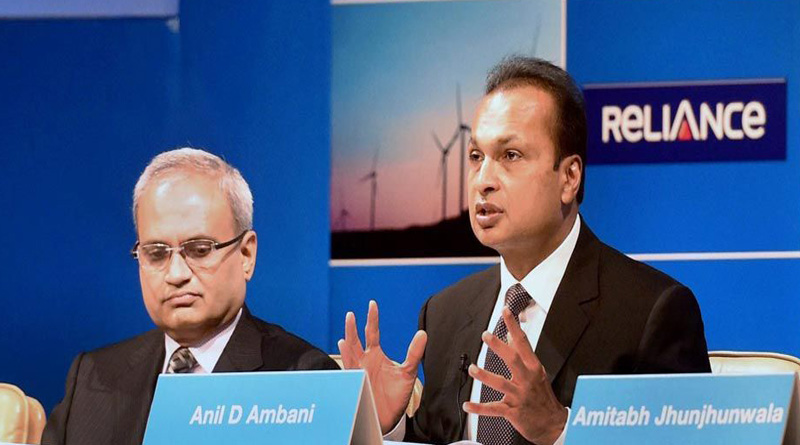
Reliance Capital said the Japanese company will be investing Rs 2,265 Crore to acquire an additional 23 percent stake in Reliance Life Insurance and this transaction pegs Reliance Life Insurance’s valuation at approximately Rs 10,000 Crore (USD 1.5 billion).
Japan-based Nippon Life Insurance Co. on Tuesday signed definitive agreements to increase its stake in Reliance Life Insurance to 49% from 26%.
Japan’s second largest life insurance company will invest Rs.2,265 Crore to acquire the additional 23% stake in the company that is part of Anil Ambani-controlled Reliance Capital Ltd.
The company’s name will be changed to Reliance Nippon Life Insurance Co. Ltd in line with the new shareholding structure.
The transaction pegs Reliance Life Insurance’s valuation at approximately Rs.10,000 Crore, among the highest valuations for any life insurance company in the country, Reliance Capital said in a statement on Tuesday.
The Insurance Laws (Amendment) Act, 2015, allows a hike in foreign direct investment (FDI) to 49% from 26%. Since life insurance is a long-term business, embedded value represents the present value of all future profits.
“Nippon Life Insurance’s investment also represents an implied embedded value (EV) multiple of over three times for Reliance Life Insurance, the highest for any private insurer in India till date,” it said.
One of the reasons that Reliance Life has been able to get such a high valuation is because of its distribution channel, which is fully agency driven.
“Nippon is an agency driven insurer, so they understand Reliance Life business. Also, as an agency driven company, your strength is ownership of your distribution channel that is owning the agency franchise. Insurers who rely largely on banks for distribution will find it difficult to get a high valuation because the bank has the option to change partners regularly once the contract is up after three years,” said Sam Ghosh, executive director and group CEO, Reliance Capital.
Also, under the new corporate agency guidelines issued in September by the Insurance Regulatory and Development Authority of India (Irda), banks have the option of working with up to three insurers, Ghosh said. So, banks can either continue to sell policies of one insurer or go up to three insurers.
“Insurers who are bank owned will struggle for a high valuation given the new guidelines. The other advantage agency insurers have is the ability to sell products which have higher margins, so generally bank distribution tends to focus on unit-linked type products with lower margins, whereas agency insurers tend to focus on traditional products with higher margins,” he added. With this transaction, Nippon Life would have invested an aggregate of R5,327 Crore for acquiring 49% stake in Reliance Life Insurance.
Nippon has also committed an investment of Rs.3,303 Crore for acquiring 49% stake in Reliance Capital Asset Management, thereby taking its total investment to Rs.8,630 Crore, the largest foreign direct investment (FDI) in the financial services sector.
“We are delighted that the outstanding relationship between our two companies has now grown into an equal partnership, with Nippon Life Insurance increasing their stake first, in our asset management business, and now, in our life insurance business—to 49%. Life insurance is one of Reliance Capital’s major businesses, and we believe Nippon Life’s experience of over 125 years will accelerate our growth in this space,” said Anil Ambani, chairman, Reliance Group.
The boards of directors of both the firms have approved the stake hike, which now needs the approval of the Foreign Investment Promotion Board of India, Competition Commission of India and Irda. The deal is expected to be completed within the current fiscal year.
“This additional investment represents not only the past efforts and initiatives, but also the good relationship between both companies going forward,” said Yoshinobu Tsutsui, president, Nippon Life Insurance.